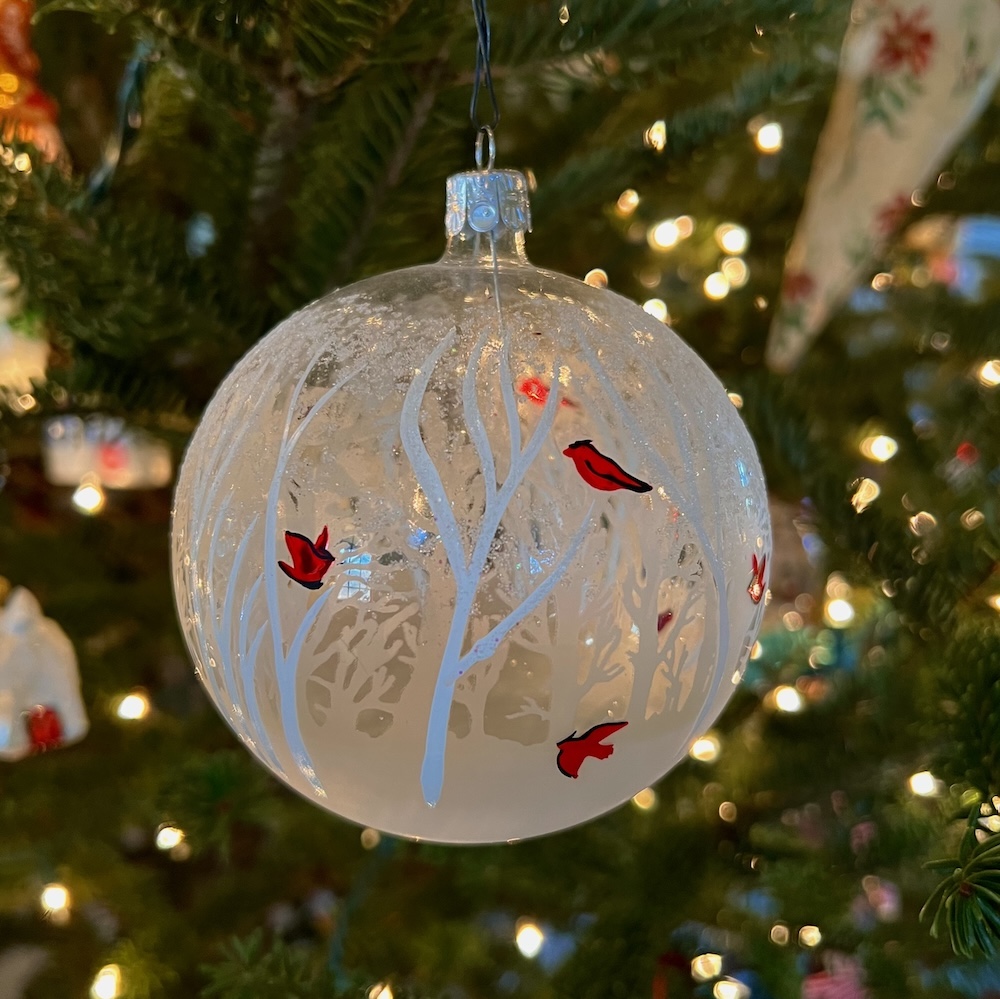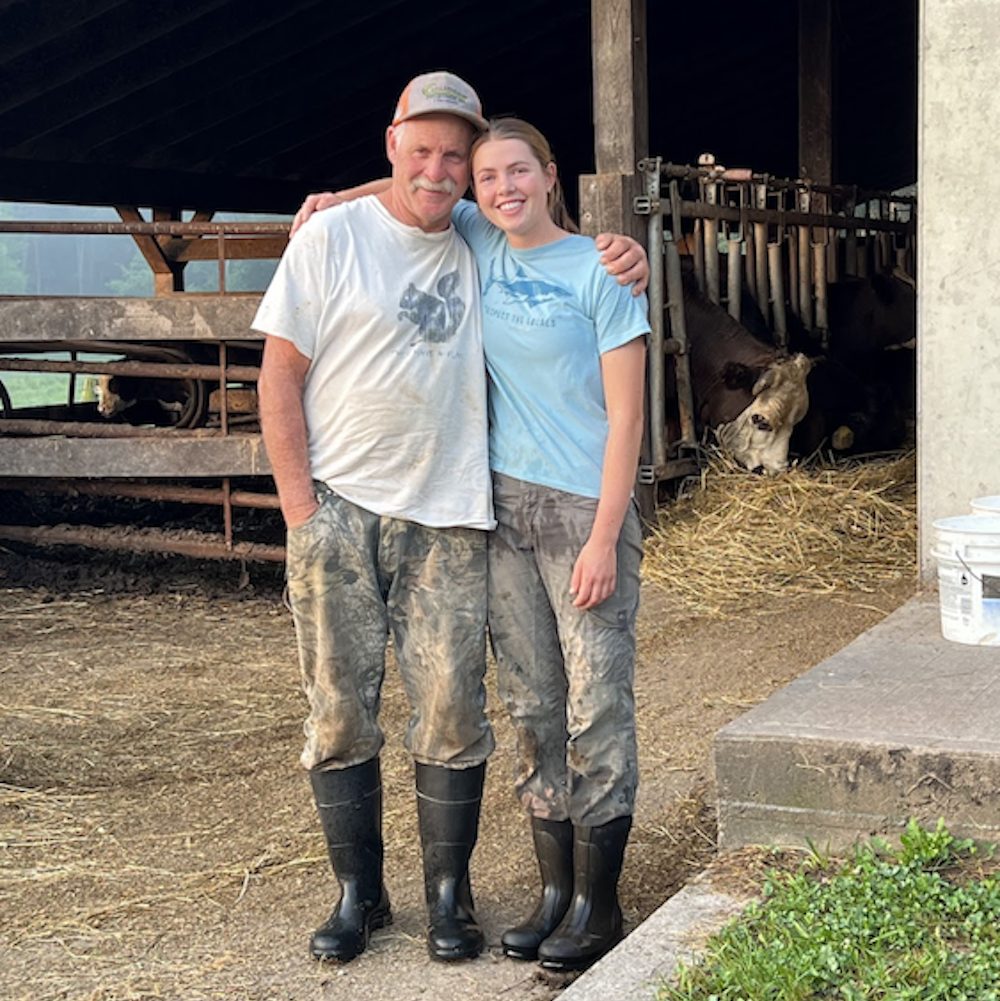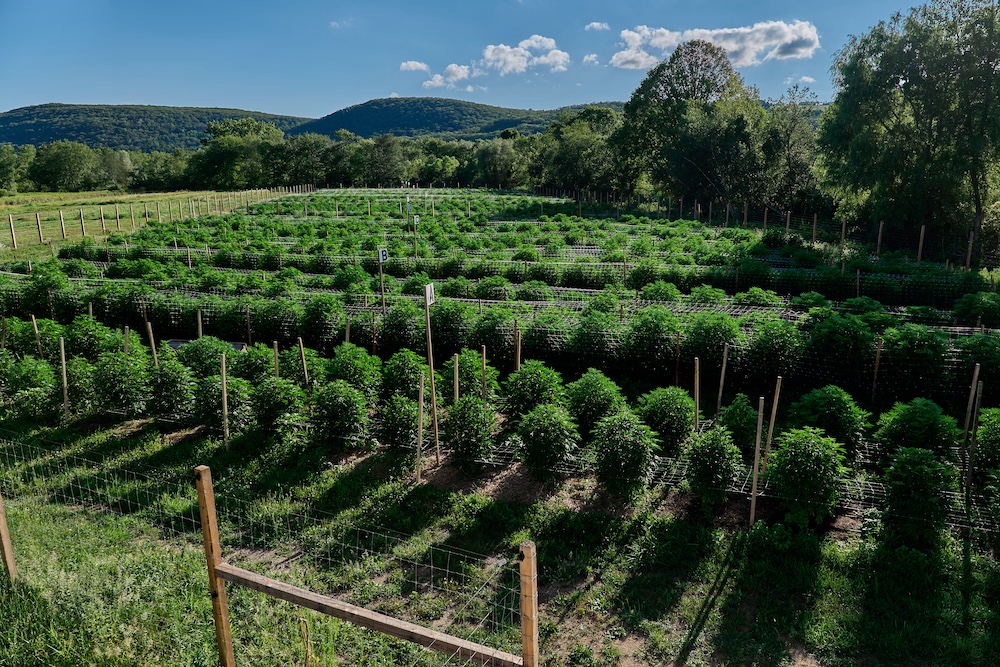
Gimme the Dirt… On Gentrification
Once upon a time, not so very long ago, in a land of exceptional natural beauty, there lived a little boy. He swam in ice-cold streams on steamy, hot summer days. After a day of ice skating on a local pond, he warmed himself by the heat of a bonfire. With his brothers, he ran free through open fields and thick woodlands. On bright spring days, with a pile of cousins, he and his brothers worked alongside his grandfather on the farm, milking cows, playing in the hay loft of a gigantic old barn, and riding on the fender of the tractor his grandfather drove with extra care when small passengers were aboard. On certain days, the boy would help his grandfather load large cans nearly overflowing with fresh, rich milk onto the bed of the old farm truck and haul them around the corner to the creamery, where the milk was turned into cottage cheese or bottled for school children’s lunches. The county’s farmers filled the enormous vats until, to that little boy’s eyes, they resembled gigantic white lakes. At night, the quiet of the country seeped through the walls of his house, peaceful and comforting. The little boy grew big and strong eating at the family table: eggs from chickens that pecked outside the back door, meat from animals he raised with careful hands, vegetables from the garden, milk he collected every morning and night from his beloved Guernsey cow Daisy Bell, and bread made by his mother’s hands.

This may sound like the beginning of a fairytale, or children’s book, but it’s all true: it’s the very real story of my husband’s childhood, growing up here in the Rondout Valley. Before this place was discovered, rediscovered, and then discovered again by newcomers who insist they saw it first and know it best, it was simply home for both of us. Much of my own childhood was similar to his. I wasn’t raised on a farm, but I was still a country girl through and through, skating on frozen ponds and swimming in local streams, and tree-climbing and homegrown food staples of my childhood, just like his. Most of our friends grew up the same way because, you see, it was the country. Or, as it’s known in more carefully curated circles, “rural.”
In all the changing times our area has seen, I feel like none have impacted this place more than the changes happening now, except maybe the construction of the Ashokan Reservoir way back in the early 1900s. There is a discontent that exists amongst locals towards transplants, and I suspect it harkens back to those dark days when engineers, planners and politicians swarmed to the Catskills to set in motion the construction of the reservoir. Without so much as a polite hello, residents of small hamlets were handed their eviction notices in what remains today one of the most horrific examples of taking by eminent domain. Some of these homesteads had been in their families for generations when they were told to vacate them. Farms the size of ours – houses, barns, fields, and pastures – were soon under the crisp, clear mountain water of the Ashokan Reservoir, the foundations and stone walls of which can still be seen when the waters recede to drought levels. Churches, mills, farmsteads, general stores, post offices, schools, boarding houses, homes: most were unceremoniously burned, nearly all without fair value being paid for the trouble. Whole towns disappeared, the only hint of their existence today a few metal signs scattered along back roads overlooking the reservoir: Brown’s Station, West Hurley, Olivebridge, Olive, Glenford, West Shokan, Boiceville, and others. More important than the buildings, though, were the people who lost their livelihoods, their homes, their communities: their sense of place. In perhaps the most disrespectful act, entire cemeteries of bodies were unearthed, decaying caskets moved, and all reinterred in large group plots nowhere near their still-living loved ones. Today, resentment whispers through the Catskills – locals vs. “city people,” country vs. urban, uncultured rednecks vs. suave urbanites. You see, all those reservoir planners from the city viewed the country folk as malleable dimwits, and for their part, the country folk viewed these powerful newcomers as callous autocrats. In over 125 years, it often feels like not much has changed.
The irony for us is that our farm, with the two of us along for the ride, has been embraced by more urbanites than I can count. Many have become friends with whom we socialize. Some are so dear to us that they’re nearly family. And most have become customers, patronizing our farm for the products we raise and walking the land that grows such nutritious, flavorful food. We find ourselves stuck literally between a rock and a hard place: loving a peaceful life of quietude and simplicity, while at the same time loving the people who’ve brought with them pollution of noise and light and a faster way of living. The politics of these rapid changes are complex, distressing, and as much a flash point as those smoldering ruins the reservoir washed away, so they’re better left for another conversation. The personal impacts are ones we confront daily.
Once part of a contiguous tract of woods and farmland running the length of the Rondout Creek, this farm now feels like an island in an ocean of change. Farmers sold land to make up for income shortfalls, and all that farmland and woodland grew a new crop: houses. To be fair, our own house is new by local standards. It was built by my husband with his own two hands when he was 20 years old, in what had previously been pasture for his grandpa’s cows. But, the bulk of the land is still growing food for cows, which it has done for centuries, and the rest is woodland that supports a vast diversity of wildlife. I feel the need to dispel assumptions here: Barton is not simply a privileged white male farmer who inherited his land. He is self-made, purchasing his property from his grandfather when he was just eighteen, paying the going mortgage rate at the time, which was then in the double digits. Barton worked four different jobs to pay for it all and then continued to do so to support his young family. Anyone could’ve purchased this land to do exactly what he did because it had been for sale for a long, long time. His grandfather wouldn’t have discriminated against a single soul wanting to pay a fair price for the land. It just turned out it was his grandson who did. One benefit Bart experienced when he decided to farm was a support system: grandparents and parents, aunts and uncles, other farmers, and friends who stuck around after high school – his community. Today, much of that support system is gone. Soaring property prices have driven many young locals out of state, and farmers were able to make more selling their land than they ever could farming it. We are some of the last holdouts from the “old guard.’ Some days, it feels mighty foolish to continue to farm where we do. The views from our hilltop make realtors swoon. We know because we’ve walked it with them. We aren’t so foolish as to turn a blind eye to what this ground is worth.
So why do we continue? Because what we do is important on every level, and that is never lost on us. Our farm contributes to the health of our community on every level: economically, environmentally, socially, and educationally. Farming enables us to afford this land, which, by rights, we have no business owning. If it weren’t being used as agricultural land, the taxes alone would push us out. We grow the food we can sell, but we also eat it ourselves, a luxury not many people can afford these days. Simply put, we love farming: the animals, the outdoor lifestyle, the intellectually stimulating work, the problem solving; we especially love this place we farm, and working together while we do so. The battle we fight daily is both inward and outward. Inside, we struggle with whether we want to stay in this rapidly gentrifying place anymore. We admit to perusing the real estate sections in our farming magazines just in case the scales tip in that direction. But no other farm feels as perfect as Hilltop Farm. We half-jokingly make a list of all the people we’d like to take with us if we go so we can create a private enclave of people we don’t want to lose. The list is long and surprisingly includes some of those music-festival-loving folks. Our outward fight requires us to step outside our comfort zone: we need to deal with people. How it looks is very different from how it feels. We now sell our products directly to the public, inviting people to see how their food is raised, educating them about our practices, sharing the stewardship we see as our responsibility, and displaying the natural beauty we are convinced is the reason our food tastes so delicious. We advocate for small farms every chance we get.
The bottom line is this: we know “the good old days” are gone forever. We are adapting in every way we know how without compromising our values or what we know is true. We only wish those who arrive here would have the same adaptational skill: to see this place as whole and perfect just as it is, without trying to change it or somehow make it “better.” We’d love to again see the Milky Way and fireflies unimpeded by a man-made glow and hear the tree frogs and crickets without the awful thump of an amplified bass. We hold out hope that the people we love, who don’t see this place the way we do, can have compassion for what it’s like for us, as the country folk we are, and respect our love for the quiet country life. And maybe we can all live here, savoring the peace and quiet together. Or maybe that’s the fairytale.

Photos courtesy of Rebecca Collins Brooks
+ + +
Rebecca Collins Brooks is a writer and farmstead cheesemaker on Hilltop Farm in Accord, NY. She is the creator and founder of The Meeting of the Milkmaids, a gathering of women working in the cheese and dairy industry. In addition to a small herd of dairy cows, she and her husband Barton raise Wagyu beef, selling meat to customers directly off the farm. Her best friends are two terriers, Winston and Molly; and Sylvie, a truly brilliant barn cat. You can visit the farm by appointment to see where truly good food is grown.
Connect with Rebecca via Instagram @catskillwagyu, on Facebook CatskillWagyu
And check out > INSIDE+OUT Spotlight on Catskill Wagyu at Hilltop Farm
Write a Comment
You must be logged in to post a comment.













